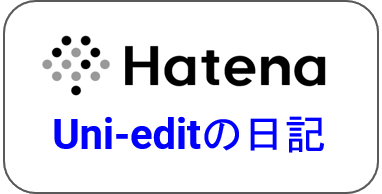難易度:初級
lingua franca(リンガフランカ)という言葉を聞いたことがありますか。それはラテン語ですが、英語でも使います。ラテン語で文字通りには「フランス語」という意味です。今日では「言語の異なる人々の間で話される共通語」という意味で使用します。18世紀にはフランス語が国際的に使用された言語であったことがこの言葉の由来です。
現在では、英語が国際的なlingua francaです。英語の他に例を見ない特徴は、世界中でネイティブスピーカーよりもノンネイティブ・スピーカーのほうが多いということです。英語が字義通りでは「フランス語」になってしまったことは皮肉なことです。英語は世界を統合しますが、地域によってバリエーションが存在することを認識しておかなければなりません。
アメリカ(US)英語とイギリス(UK)英語は、文書英語と口語英語で最も一般的な2つの系統です。アメリカ英語は、米国の英語です。イギリス英語は、英国の英語です。イギリス連邦の多くの国(カナダ、オーストラリア、ニュージーランドなど)は、最初は英国英語を支持していましたが、その後各国特有のスペルとスタイルに変化しています。オーストラリア英語は英国英語と非常に似ていますが、少数の単語(たとえば、"enquire"の代わりに"inquire")は米国式スペルを許容しています。カナダ英語は多くの単語は英国式スペルを保持していますが、米国式スペルも地理的に近いためによくみられます。
例1(米国):We inquired whether participants were taking estrogen supplementation.
(我々は参加者がエストロゲン補充を受けているかどうかを調べた。)
例2(英国):We enquired whether participants were taking oestrogen supplementation.
例3(オーストラリア):We inquired whether participants were taking oestrogen supplementation.
例4(カナダ):We enquired whether participants were taking estrogen supplementation.
文書の英語で最も顕著な違いがあるのは、句読点とスペルです。学術誌から論文の著者に対し共通して指摘されることは、「米国英語と英国英語のいずれを使用しても良いが、混合してはならない」ということです。「アカデミックスタイルの英語」がますます一般的になってきており、基本的に著者は自分の好む系統を選ばなければなりません。学会誌によって規定が異なるので、論文原稿を校正し提出する前に各学会誌の投稿規定を確認し、適切な英語システムを決定する必要があります。
例1:(Natureの出版物)Oxford UK English spelling.(Oxford英国式スペル)
http://www.nature.com/ncomms/authors/submit.html
例2:(IEEEの出版物)Change all British spellings to American spellings where applicable.(必要に応じ、すべての英国式スペルを米国式スペルに変更する。)
http://www.ieee.org/about/webteam/styleguide/mainsite_content.html
例3:(例えばJournal of Endocrinology) Manuscripts can be written in either UK or US English.(原稿は英国英語または米国英語のどちらでも良い。)
http://joe.endocrinology-journals.org/site/misc/For-Authors.xhtml
たいていの国際的出版物には米国式のスペルと文法を選択するのが無難です。英国に拠点を置く出版社(例えば、Oxford University Press)は、通常、英国式スペルを好みます。カナダやオーストラリアの現地の出版物は、自国バージョンの英語に準拠することがあります。たとえば、オーストラリアの大学で論文を書いている場合、オーストラリア英語を使用するのが賢明です。
学会誌がスペルの系統を指定しない場合、米国式または英国式のスペルを推奨します。
最後に、ネイティブ・スピーカーはとかく英語の系統の違いを重視しがちであり、英国は英語の起源の国であるので英国英語こそが「正当な」英語であるとか、米国英語は世界的に広がっているので米国英語を学ぶのが最も良いとか言うものです。しかし、グローバル化した世界では、これらの多くは意義よりもむしろ文化的なアイデンティティの違いに相当します。賢明な著者はそのような安易な判断を超越して、投稿する学会誌の英語の各系統に習熟することです。
アイコンをクリックして、ダウンロードする:  世界英語の違い-アメリカ英語とイギリス英語
世界英語の違い-アメリカ英語とイギリス英語
Uni-edit English Writing Tip 004: Variants of World English – American and British
Level of difficulty: Easy
Have you heard of the term lingua franca? It's a Latin phrase, but you can use it in English. It comes from Latin, and literally means "French language": it is used nowadays to mean a common language between people who do not speak the same language. In the 18th century, French was the language of international diplomacy: that's the origin of this term.
Nowadays, English is the international lingua franca. What makes English truly unique is that there are more non-native speakers in the world than there are native speakers. How ironic that English has become literally a "French language"! Although it unites the world, there are regional variations of English that persist, and which you should be aware of.
American (US) and British (UK) English are the two most common systems of written and spoken English. American English is the English of the USA; British English is the English of the UK. Many countries of the British Commonwealth (Canada, Australia, New Zealand, etc.) originally favored UK English, but have since diverged, with country-specific variations in spelling and style. Australian English is very similar to UK English, with a few words permitting American spelling (e.g., "inquire" instead of "enquire"). Canadian English retains UK spelling for many words, but American spellings are also common because of geographical proximity.
Example 1 (US): We inquired whether participants were taking estrogen supplementation.
Example 2 (UK): We enquired whether participants were taking oestrogen supplementation.
Example 3 (Aus): We inquired whether participants were taking oestrogen supplementation.
Example 4 (Can): We enquired whether participants were taking estrogen supplementation.
The most noticeable variations in written English are punctuation and spelling. A common instruction from academic journals is for authors to use “either US English or UK English, but not a mixture”. Increasingly common is "English in academic style": basically, the author should choose his or her preferred system. Because requirements vary from journal to journal, it is essential that you check a journal's Author Guidelines page to determine an appropriate English system before editing and submitting your manuscript.
Example 1: (Nature publications) Oxford UK English spelling.
http://www.nature.com/ncomms/authors/submit.html
Example 2: (IEEE publications) Change all British spellings to American spellings where applicable.
http://www.ieee.org/about/webteam/styleguide/mainsite_content.html
Example 3: (e.g. Journal of Endocrinology) Manuscripts can be written in either UK or US English.
http://joe.endocrinology-journals.org/site/misc/For-Authors.xhtml
US spelling and grammar is a safe choice for the majority of international publications. UK-based publishing companies (e.g., Oxford University Press) usually prefer UK spelling. Local publications in Canada or Australia will sometimes adhere to their version of English. For example, if you are writing your thesis for an Australian university, writing in Australian English is the way to go.
If the journal does not specify the spelling system, we recommend US or UK spelling.
One final note: native speakers like to play up differences between variants of English, saying UK English is the ‘true’ English since it England is the land of its origin, or that US English is the best to learn because of the US's global reach. However, in a globalized world, many of these differences correspond to cultural identity rather than meaning. A wise author will rise above such simplistic judgments and familiarize him or herself with the details of each English system for publishing purposes.
END OF TIP



